Legislation & Public Policy
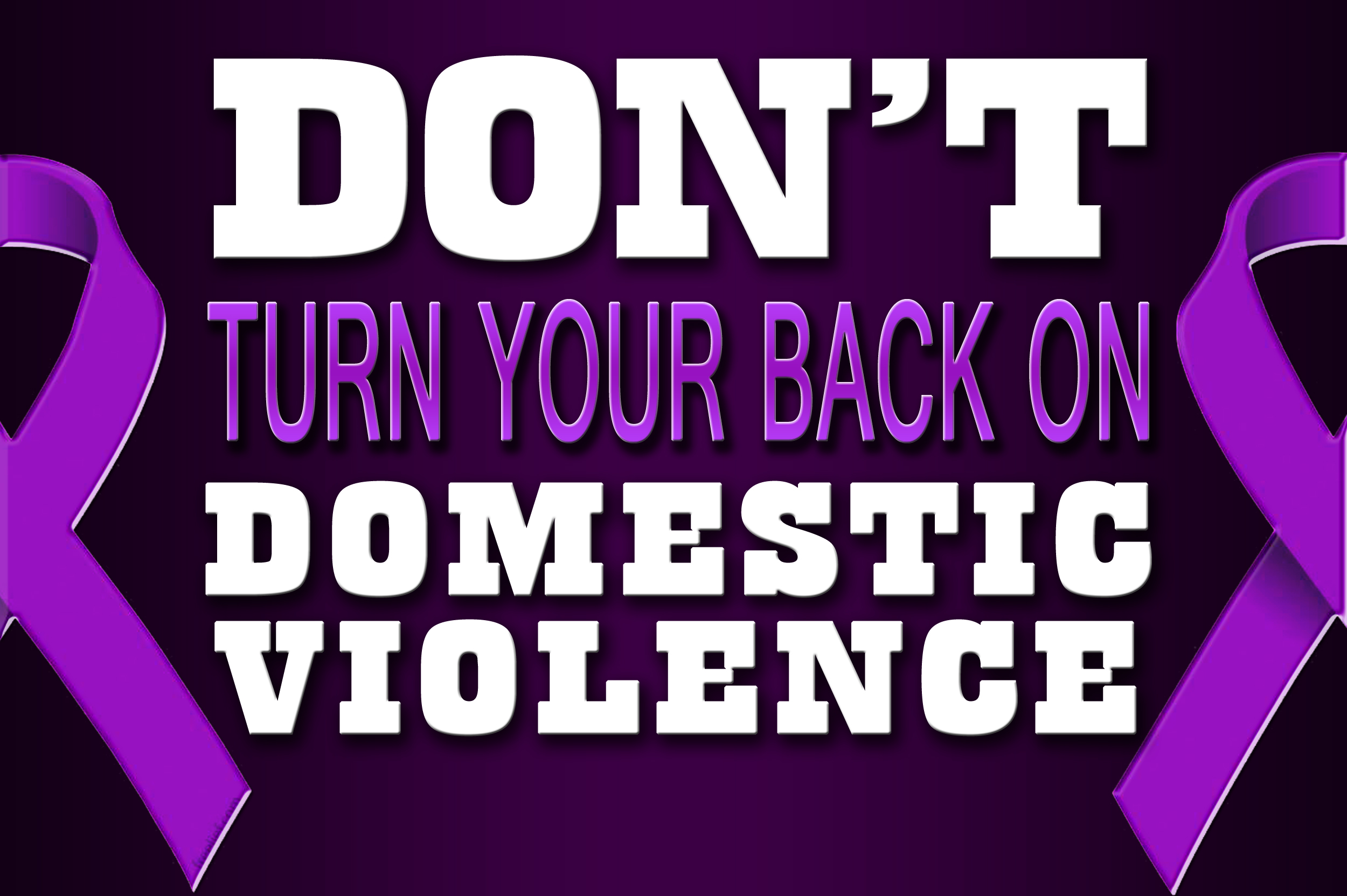
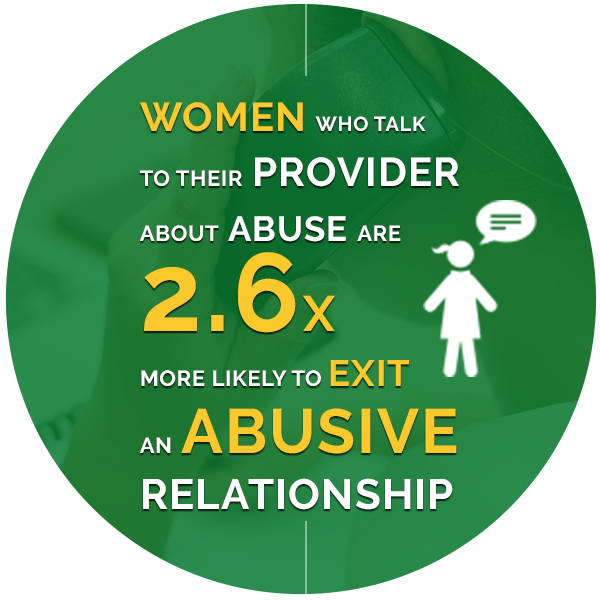
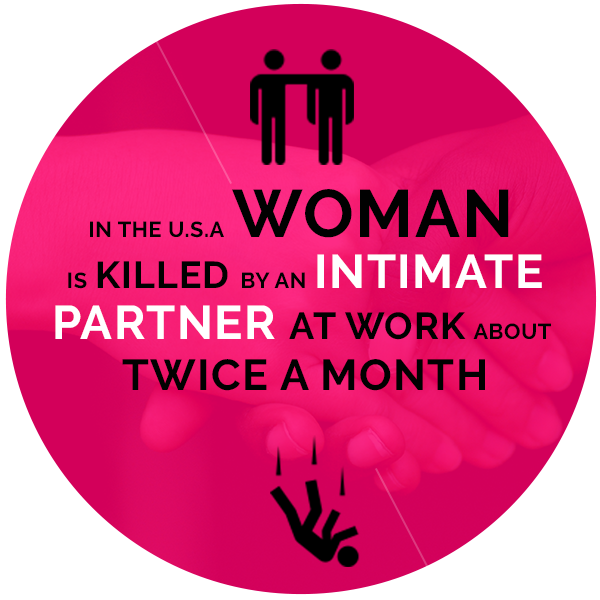
WE NEED YOU!
During the 2022-2024 administration the Legislation/Public Policy Chairman will be Gathering Facts and Working for Change in PennsylvaniA (GFWC PA).
The focus will be
- Legislative Action Center
- Recognition of GFWC and GFWC Pennsylvania Emblem
- Advocacy
- Awareness
The GFWC Legislative Action Center (LAC) is the primary tool that GFWC uses to educate and mobilize its members. Members who sign up for the LAC receive updates on specific legislation GFWC is supporting. These updates let members know when to contact their national legislators about a bill. To realize the full potential of this tool, however, members must sign up for the LAC. You can sign up for the LAC by going to the GFWC website (GFWC.org), clicking on the “What We Do” tab, then clicking on Legislation/Public Policy, and finally scroll down to click on the image that says, “Legislative Action Center.” From here, members will click on the blue button that says, “Join Now.” The direct link to the LAC is https://cqrengage.com/gfwc.
Members fill in their name, address, and email address then click in the boxes under “Remember Me” and “Email Opt-In” in order to receive the notifications issued by GFWC and then “TAKE ACTION” by responding to the notifications that the member supports. Members are encouraged to share information from the LAC notifications with their family, friends, and local community.
GFWC Scavenger Hunt
GFWC has developed a plan to get members and clubs more involved in the legislative process. An individual member, club, or State Federation may complete the Scavenger Hunt, which is intended to encourage legislative advocacy on the local, state, and national level, while also raising awareness of GFWC as an organization.
One point is given for each item on the list, and most items can be done multiple times during the 2022-2024 Administration. Completed Scavenger Hunt Forms should be emailed to GFWC Chairman Juliet Casper at 9200@gmail.com and will be recognized throughout the administration.
Items in the hunt include:
- Photo in front of state capital building
- Photo with elected official
- Print out of confirmation that you acted upon LAC Alert
- Received a written response from an elected official
- Copy of a local or state proclamation for Federation Day or Advocated for Children Week
- Photo with a member of club or state Legislation/Public Policy Committee
- Bonus points for wearing GFWC or Club Shirts as well as posting on social media with the #GFWC advocacy
GFWC Legislation Action
The following information will help members contact legislators and track legislation of interest. Use it as a basis for monthly articles in your club newsletter or as a handout for members. Update by changing information on two or three important pieces of legislation on which you would like members to take action:
Women’s Congressional Policy Institute https//: www.wcpinst.org/our-work/the-source/
Scroll down to Weekly Legislative Updates- click view more.
GFWC Legislation Action https://www.gfwc.org/what-we-do/public-policy/
Scroll down and click on the Legislative Action Center square for up-to-date information.
GovTrack.us https://www.govtrack.us/
GovTrack.us began in 2004 as a project to use technology to make the U.S. Congress more open and accessible. Today they are the leading non-governmental source of legislative information and statistics. This site is comprehensive and will answer most questions.
Home page:
- Find your senator and representative by zip code (put your area’s legislators here).
- Find legislation on a particular subject and set an alert to be notified of changes in status.
- Articles of interest on a variety of subjects, such as How a bill actually becomes a law, Trending, What We’re Watching and Legislation Coming Up.
Top Menu Bar:
- Bills and Votes: Bills and Resolutions, Roll Call votes, how does a bill become law, what is the law and Congressional procedures.
- Legislators: Senators, Representatives, Committees and committee members, and misconduct database.
- How to Use GovTrack.
- View live session.
GFWC Legislative Action Center ask Clubwomen to participate in urging members of Congress to provide increased funding for programs.
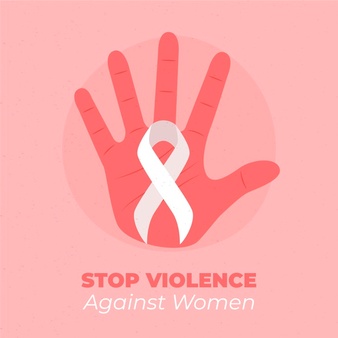
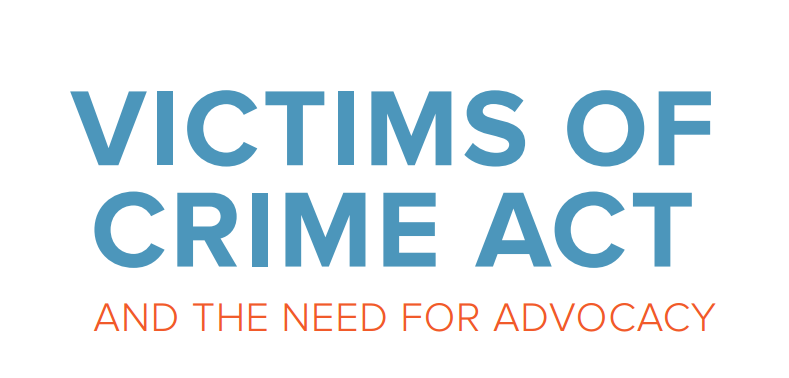

Reauthorization of the Violence Against Women Act
It’s time to reauthorize the Violence Against Women Act, H.R. 1620, devoting resources to local communities by enhancing and expanding prevention programs and services to survivors of domestic violence, sexual assault, dating violence, and stalking. The Bill passed the U.S. House of Representatives and is awaiting action from the U.S. Senate. Contact Senator Robert Casey and Senator Patrick Toomey requesting support.
Robert Casey (D PA) www.casey.senate.gov/contact/ Patrick J. Toomey (R PA)www.toomey.senate.gov/?p=contact
Fix VOCA the House approved H.R. 1652
The Victims of Crime Act was passed on March 17, 2021, created in 1984 granting state and local programs to assist victims of crime. This Act would enable local organizations help survivors of domestic violence, child abuse, sexual assault, trafficking and to the crimes to provide counseling case management crisis hotlines, emergency shelters and community-based programs. This Bill passed the U.S. House of Representatives and is awaiting action in the U.S. Senate. Contact your Senators and urge them to support the VOCA Act.
Robert Casey(D PA) www.casey.senate.gov/contact/ Patrick Toomey (R PA ) www.toomey.senate.gov/?p=contact
Equal Pay for Equal Work
The Paycheck Fairness Act, H.R.7 and S.205 would take steps to end gender-based pay differences.
Fifty-eight years after the signing of the Lilly Ledbetter Fair Pay Act, the promise of equal pay for equal work remains unfulfilled. This bill is not simply a women’s issue,it’s a family issue and an anti poverty issue.The bill addresses wage discrimination on the basis of sex.
This Bill passed the U.S. House of Representatives and is awaiting action in the U.S. Senate. Contact your Senators and urge them to support the Paycheck Fairness Act S.205
Robert Casey (D PA) www.casey.senate.gov/contact/ Patrick Toomey (R PA) www.toomey.senate.gov/?p=contact
Support the the Equal Rights Amendment
“Equality of rights under the law shall not be denied or abridged by the United States or by any State on account of sex.”
March 17, 2021, the U.S. House of Representatives voted to remove the time limit with a vote of 222-204 on HJ Res 17. Attention now turns to the U.S. Senate and moving SJ Res 1 to the floor for a vote. Contact your Legislators requesting support of the ERA Amendment.
You Can Make A Difference With Your Voice
Domestic Violence is a pattern of one person controlling or dominating another person and involves different types of abusive ways. Domestic Violence often happens behind closed doors and many cases are never reported. Did you know 1 in 4 females fall victim to physical assault by their partner? In the U.S. alone, as many as 24 people a minute become victims of stalking, physical attack, or rape. That adds up to 12 million victims per year.
Some of the main domestic abuse categories are:
- Physical – pushing, kicking, strangling or other physical violence.
- Sexual Abuse– forceful sex, sexual assault, or sexual threats; demeaning behavior like exposing a partner’s body to friends, forcing a partner into posing for pornography, secretly videotaping a partner while engaging in sex, or forcing a partner to have sex without using protection.
- Emotional – Threats, manipulation, lies, stalking, name-calling.
- Economic – denying access to bank accounts and other financial platforms.
- Psychological – a broad term that includes acts, threats of acts or coercive tactics to cause someone fear and trauma. If there has been previous physical or sexual abuse in the relationship, any further threat of abuse is considered psychological violence. Can include humiliation, controlling what the victim can and cannot do, withholding information, diminishing, or embarrassing the victim, and isolating the victim from friends and family.
The accessibility of cell phones and computers have brought sexual violence into the digital realm. Policymakers and other civic leaders should consider how information and communication technologies facilitate sexual violence and take steps to prevent harm. You can use your VOICE to raise awareness about sexual violence by reaching out to legislators and ask for support in enacting laws to protect individuals against violence.
In the United States, Violence Against Women has reached unprecedented levels on Native American women and Alaskan native women. More than 4 in 5 have experienced violence and 1 in 2 reported sexual violence. Alaskan native Americans reported the highest number of forceful sexual violence and reported domestic violence is 10 times higher. Statistics define the scale of the problem but do nothing to help the epidemic impact felt by the survivors of sexual violence or the Native communities and the Indian nation. Native American children exposed to violence suffer rates of PTSD three times higher than the rest of the general population. The Center for Native American Women reports that statistics make it clear violence against Native American women is a crisis and cannot wait any longer to be addressed.
A vast majority of Native American women never see their abusers or rapists brought to justice. Federal and state officials fail to protect Native American women and girls by declining to prosecute 67% of the Indian country matters referred to them involving sexual abuse and related matters. The Center for Native American Women hopes to raise awareness about violence and gain stronger federal action that would end violence against Native American women; provide legal advice to Native American Organizations on ways to restore criminal authority and preserve tribal civil authority; and help prevent violence against women and punish offenders.
You can use your VOICE by asking your legislators for support in passing H.R.1620 – Violence Against Women Act Reauthorization Act, which modifies and reauthorizes through FY2026 programs and activities under the Violence Against Women Act that seek to prevent and respond to domestic violence, sexual assault, dating violence, and stalking and provide resources to help survivors gain and maintain economic independence. You can use your VOICE by contacting members of Congress and asking for their support.
Some of the additional issues in the Bill would:
Add definitions used, and housing programs and financial needs for survivors.
- Amend federal criminal law relating to firearms, custodial rape, and stalking.
- Expand tribal jurisdiction over certain crimes committed on tribal lands.
- Create positions in the Office on Violence Against Women to aid financial needs among survivors.
For here for a full explanation.
No one deserves to experience abuse of any kind for any reason.
ARE YOU THE NEXT LEGISLATION HEROINE?
One hundred years ago in 1920, our ancestors won the seven-decade fight for the women’s right to vote; to have their opinions heard and counted. What better time is there for every GFWC clubwoman to become an advocate for the issues of importance to her? We need to honor the struggles those women made by casting our ballots at every election, contacting our legislators to tell them our views on the legislation being considered and asking for legislation we want written.
GFWC AND GFWC PENNSYLVANIA RESOLUTIONS AND ADVOCACY
Only with a resolution on the books can GFWC advocate for or against an issue. Resolutions can be used as tools for advocating important issues at the local, state, and national levels. If a subject is not addressed by a resolution, members cannot use GFWC’s name to advocate for or against the issue but may advocate as concerned individuals. GFWC’s current list of resolutions can be found at gfwc.org. Please allow extra time for the current list to be posted due to the administration change.
Any time a GFWC member engages in written correspondence with her legislator, she should use the color RED, the color of GFWC’s official flower, the red rose. Use the power of GFWC and GFWC Pennsylvania by including the phrase: “As a member of GFWC, an organization of 80,000 women nationwide and GFWC Pennsylvania, I ask you to…” Sign your name and the name of your club in RED. For traditional letters, the member should write her return address in RED and put a big check mark in RED on the outside of the envelope. Eventually, when a legislator or legislative aide sees a red signature or a red return address, she will recognize that she is again hearing from a GFWC member.
US House of Representatives
To locate the name and contact information for your US Representative, go to www.house.gov, click on the tab marked REPRESENTATIVES; go to Pennsylvania in the list of states. To locate a list of US House of Representative Committees and who is serving on each one, go to https://www.legis.state.us click on the tab marked COMMITTEES.
US Senate
To locate the name and contact information for your US Senator, go to www.senate.gov, click on the tab marked SENATORS; go to Pennsylvania in the list of states. To locate a list of US Senate Committees and who is serving on each one, go to www.senate.gov, click on the tab marked COMMITTEES.
The Equal Rights Amendment
Did you know that the Equal Rights Amendment is not part of the United States Constitution? When polled by the Opinion Research Corporation, 96% of Americans agreed that men and women should have equal rights, but 72% thought that these rights were already guaranteed by the Constitution.
Section 1. Equality of rights under the law shall not be denied or abridged by the United States or by any state on account of sex.
Section 2. The Congress shall have the power to enforce, by appropriate legislation, the provisions of this article.
Section 3. This amendment shall take effect two years after the date of ratification.
The ERA was written by Alice Paul, a suffragist leader, and introduced in Congress in 1923. It took until 1972 for Congress to pass the amendment. It was then sent to the states for ratification with a seven-year deadline. An extension was passed by Congress with a new deadline of 1982. Unfortunately, to this date, only 37 of the required 38 states have ratified the ERA, with Illinois having just passed it on May 29th, 2018. Congress has already demonstrated that the ratification deadline can be extended thereby keeping in play the 37 states that have already approved it. Eliminating the time limit for ratification would allow the ERA to be added to the Constitution whenever one final state ratifies it. There is nothing in the Constitution which requires a deadline be set at all.
Please contact your members of Congress and urge them to extend or eliminate the deadline for ratification of this important amendment to our Constitution. You may also support this effort on Facebook or hold a tweet party at one of your meetings by having all your members send a twitter message telling Congress to eliminate the deadline. With one more state’s approval, the Equal Rights Amendment would become part of the Constitution thereby guaranteeing equal protection for women and men under the law.
HOW DOES A BILL BECOME A LAW?
Bills are introduced in the House of Representatives. There is no certain number of days required for a bill to become law, but it must be voted on in the same congressional session or same year that it is introduced. If it is not voted on during the session, it can be reintroduced the following year, when it must start its journey over again.
A sponsor is the first member of the House or Senate to introduce a bill for consideration.
A “cosponsor” is a senator or representative who adds his or her name as a supporter.
An “initial cosponsor” or “original cosponsor” is a senator or representative who was listed as a cosponsor at the time of a bill’s introduction, rather than added later.
A cosponsor added after the initial introduction is known as an “additional cosponsor”.
Once introduced the bill is referred to one or more committees for review.
-
- The Committee Chairman determines if a hearing is held.
- There may be a Mark-up (meaning a sub-committee may hold a hearing).
- A committee chairman’s staff member writes a report describing the legislation.
The Speaker of the House and Majority Leader of the Senate determine if and when a bill comes before the full body for debates, amendment, and final vote.
When the House or the Senate passes a bill, it is referred to the other chamber where it usually follows the same route through committees and floor action.
The chamber may approve the bill as received or reject, ignore, or amend it before voting.
If the House and Senate versions of the bill contain significant or numerous differences, a conference committee is officially appointed for reconciliation.
-
- If the conference committee is unable to reach an agreement, the legislation dies.
- If agreement is reached, a conference report is prepared with recommendations for changes.
- Both the House and Senate must approve of the conference report.
- If either the House or Senate chamber rejects the conference report the legislation dies.
- After the conference report has been approved by both the House and Senate, the final bill is sent to the President.
Presidential action options:
-
- Approves of the legislation, signs it and it becomes law.
- Opposes the legislation, vetoes it.
- Congress may override the veto, which requires a quorum present and a roll call vote with 2/3 voting in the positive.
- Does not act for ten days while Congress is in session, bill automatically becomes law.
- Takes no action after Congress has adjourned its second session, it is a “pocket veto” and the legislation dies.
ABOUT THE COMMITTEE SYSTEM
-
The House’s Committees consider bills and issues and oversee agencies, programs, and activities within their jurisdictions.
-
Due to high volume and complexity of its work, the Senate divides its tasks among 20 committees, 68 subcommittees, and 4 joint committees.
Although the Senate committee system is like that of the House of Representatives, it has its own guidelines, within which each
committee adopts its own rules. This creates considerable variation among the panels.
US SENATE CAUCUSES
-
Informal congressional groups and organizations of Members with shared interests in specific issues or philosophies have been part of the American policymaking process since colonial times.
-
Typically, these groups organize without official recognition by the chamber and are not funded through the appropriation process.
-
In the Senate, there is one officially recognized caucus — the Senate Caucus on International Narcotics Control, established by law in 1985.
Please share this information with your members. Know how our system of enacting laws works. Visit these sites often. Find and track bills as they move through the process. Contact your legislators and voice your opinion. If there is a GFWC or GFWC Pennsylvania Resolution that relates to the issue, use the power of the numbers by including the fact that you are a member of these organizations.
And remember to REPORT any actions taken or activities completed!!
“When we pay women less than men, we’re telling women their work isn’t as valuable. We’re all equally valuable. And we should be paid equally”
— Maria Shriver
Join a Club Near You
Reach out to our membership chairman for help finding a club near you.
For general inquiries, contact Headquarters below or the Chairman of a specific program or advancement area.
1301 Allegheny Street, Suite 119
Hollidaysburg, PA 16648
T: 814-317-6489
info@gfwcpennsylvania.org








